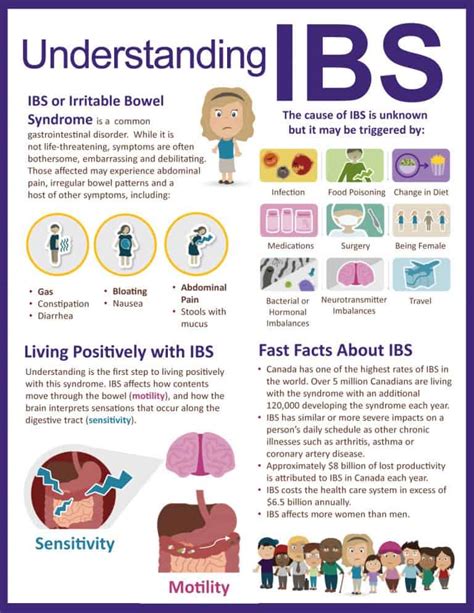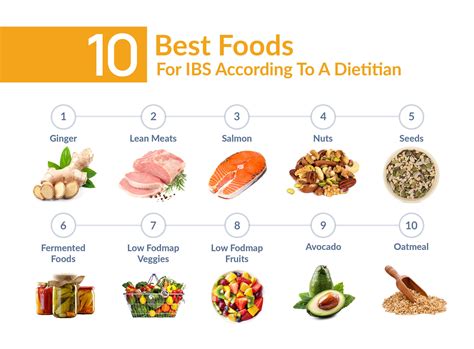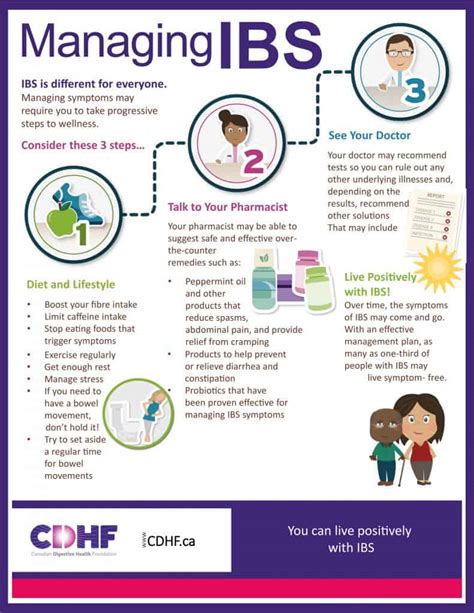Intro
Discover IBS friendly foods to manage symptoms. Learn about low FODMAP diets, gut-friendly ingredients, and trigger foods to avoid for a healthier digestive system.
Irritable Bowel Syndrome (IBS) is a common disorder that affects the large intestine, causing a range of symptoms including abdominal pain, bloating, gas, diarrhea, and constipation. While the exact cause of IBS is still not fully understood, it is believed that a combination of factors such as stress, hormonal changes, and dietary habits can trigger or worsen symptoms. One of the most effective ways to manage IBS is through dietary changes, specifically incorporating IBS-friendly foods into one's diet. In this article, we will explore the importance of IBS-friendly foods, their benefits, and provide a comprehensive guide on how to incorporate them into your daily meals.
The relationship between food and IBS is complex, and what works for one person may not work for another. However, research has shown that certain foods can help alleviate IBS symptoms, while others can trigger or worsen them. IBS-friendly foods are typically low in FODMAPs (Fermentable Oligo-, Di-, Mono-saccharides, and Polyols), a type of carbohydrate that can be difficult for some people to digest. By incorporating IBS-friendly foods into your diet, you can help reduce symptoms, improve digestion, and enhance overall gut health.
Understanding IBS and FODMAPs

IBS-Friendly Foods

Benefits of IBS-Friendly Foods
The benefits of incorporating IBS-friendly foods into your diet are numerous. Not only can they help alleviate IBS symptoms, but they can also provide essential nutrients, fiber, and antioxidants that are vital for overall health and well-being. Some of the key benefits of IBS-friendly foods include: * Reduced inflammation and improved digestion * Enhanced nutrient absorption and utilization * Improved bowel regularity and reduced symptoms of bloating and gas * Increased energy levels and improved mental clarity * Support for healthy weight management and reduced risk of chronic diseasesMeal Planning and Preparation

Common Mistakes to Avoid
When incorporating IBS-friendly foods into your diet, there are several common mistakes to avoid. These include: * Not fully understanding FODMAPs and their role in triggering IBS symptoms * Not keeping a food diary to track symptoms and identify trigger foods * Not planning meals in advance and relying on convenience or processed foods * Not incorporating a variety of IBS-friendly foods into your diet * Not seeking guidance from a healthcare provider or registered dietitianManaging IBS Symptoms

Seeking Support
Living with IBS can be challenging, and it's essential to seek support from healthcare providers, registered dietitians, and support groups. Here are some resources to consider: * The International Foundation for Gastrointestinal Disorders (IFFGD) provides a wealth of information and resources on IBS, including dietary guidance, symptom management, and support groups. * The Academy of Nutrition and Dietetics offers a directory of registered dietitians who specialize in gastrointestinal health and can provide personalized guidance on managing IBS through dietary changes. * Online support groups and forums can provide a sense of community and connection with others who are living with IBS.Conclusion and Next Steps

We invite you to share your experiences with IBS and dietary changes in the comments below. Have you found certain foods to be trigger foods or have you experienced relief from symptoms by incorporating IBS-friendly foods into your diet? Share your story and help others who may be struggling with IBS.
What are some common trigger foods for IBS?
+Common trigger foods for IBS include wheat, dairy products, beans, cabbage, and onions, which are high in FODMAPs.
How can I determine which foods are trigger foods for me?
+Keeping a food diary can help you track your symptoms and identify trigger foods. You can also work with a registered dietitian or healthcare provider to develop a personalized meal plan.
Are there any supplements that can help manage IBS symptoms?
+Yes, supplements such as probiotics, fiber, and peppermint oil may help manage IBS symptoms. However, it's essential to consult with a healthcare provider before starting any new supplements.
